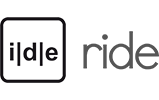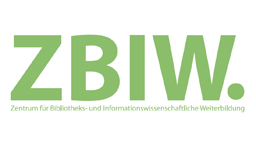 Das IDE-Mitglied Georg Vogeler spricht auf der Tagung „Editionen! Wozu? Wie? Und wie viele? Zum Stand der historischen Edition in der Schweiz im digitalen Zeitalter„, 7. / 8. November 2014, an der Universität Zürich, die gemeinsam von der Schweizer Gesellschaft für Geschichte und der Schweizer Rechtsquellenstiftung organisiert wird. Er stellt dort Thesen „Zur Materialität der historischen Quellen im Zeitalter der digitalen Edition“ vor
Das IDE-Mitglied Georg Vogeler spricht auf der Tagung „Editionen! Wozu? Wie? Und wie viele? Zum Stand der historischen Edition in der Schweiz im digitalen Zeitalter„, 7. / 8. November 2014, an der Universität Zürich, die gemeinsam von der Schweizer Gesellschaft für Geschichte und der Schweizer Rechtsquellenstiftung organisiert wird. Er stellt dort Thesen „Zur Materialität der historischen Quellen im Zeitalter der digitalen Edition“ vor
IDE launches Review Journal for Digital Editions
In the past decades, many digital scholarly edition projects have been published and are available, often for free, online. Most of these editions are arguably the best editions of their documents or texts available, and many of them offer features enhancing research in the respective fields to a considerable degree.
Despite these facts, digital editions are often neglected by the established review institutions. This neglect has a number of consequences: digital editions are somewhat outside the established peer-control process; digital editors in spe cannot rely on criticisms that projects similar to their own have received; the methodology of digital editions not only needs to incorporate traditional issues of textual criticism but also has to be thoughtful of the closely related technical and methodologic issues.
In order to address these issues, we have founded RIDE, a review journal dedicated to digital editions and resources. RIDE aims to direct attention to digital editions and to provide a forum in which expert peers criticise and discuss the efforts of digital editors in order to improve current practices and advance future developments. It will do so by asking its reviewers to pay attention not only to the traditional virtues and vices of any edition, but also to the progressing methodology and its technical implications. Editors of existing digital editions will be able to improve their work by addressing criticism and digital editors in spe will be able to learn from previous problems both of a general nature as well as specific to their fields.
Moreover, RIDE will help scholars working on the methodology and the development of the field of digital editing by collecting formal data about each project that is being reviewed. The reviews and factsheets will also provide a snapshot of a project at the time of the review, so that later developments can be compared – an important feature in a world that is characterised by a much higher dynamic than the print-world exhibits.
All this, we hope, will contribute to the ongoing methodological discussions and help to establish a best practise editors can aim at as an ideal of a digital edition (aspects of this best practise, for example, touch on accuracy, citability, sustainability, long term preservation, documentation, transparency, etc.).
You can learn more about RIDE and its method from the Editorial. All reviews are available on ride.i-d-e.de
IDE-Mitglieder ins Board des Digital Medievalist gewählt
 Die IDE-Mitglieder Franz Fischer und Georg Vogeler wurden von den Lesern des Digital Medievalist ins Herausgebergremium der Online-Zeitschrift (mit angeschlossenem Portal) gewählt und werden sich dort in den nächsten zwei Jahren darum bemühen, den wissenschaftlichen Einsatz von digitalen Methoden in der gesamten Breite der Mittelalterstudien zu fördern.
Die IDE-Mitglieder Franz Fischer und Georg Vogeler wurden von den Lesern des Digital Medievalist ins Herausgebergremium der Online-Zeitschrift (mit angeschlossenem Portal) gewählt und werden sich dort in den nächsten zwei Jahren darum bemühen, den wissenschaftlichen Einsatz von digitalen Methoden in der gesamten Breite der Mittelalterstudien zu fördern.
IDE auf Schloss Dagstuhl
 Auf dem Expertenworkshop „Digital Palaeography: New Machines and Old Texts“ im Leibniz-Zentrum für Informatik auf Schloß Dagstuhl 21.-14.7. nimmt auch das IDE-Mitglied Georg Vogeler teil und berichtet über die Rolle der Diplomatik für Forschungen in Digitaler Paläographie.
Auf dem Expertenworkshop „Digital Palaeography: New Machines and Old Texts“ im Leibniz-Zentrum für Informatik auf Schloß Dagstuhl 21.-14.7. nimmt auch das IDE-Mitglied Georg Vogeler teil und berichtet über die Rolle der Diplomatik für Forschungen in Digitaler Paläographie.
IDE@DH2014
 Das IDE war natürlich auch auf der DH2014 in Lausanne:
Das IDE war natürlich auch auf der DH2014 in Lausanne:
- Alexander Czmiel: Hacking with the TEI (Photo Booth)
- Franz Fischer: Sharing digital arts and humanities knowledge (Photo Booth)
- Patrick Sahle: Sustainability?! Four Paradigms for Humanities Data Centers (Photo Booth)
- Martina Semlak: Hartmut Skerbisch – Envisioning association processes of a conceptual artist
- Georg Vogeler: Modelling digital edition of medieval and early modern accounting documents
Seminar „XML/XSLT-Vertiefung“ an der Fachhochschule Köln
Am 26. und 27. Mai 2014 fand am Zentrum für Bibliotheks- und Informationswissenschaftliche Weiterbildung (ZBIW) der Fachhochschule Köln ein Seminar zur Vertiefung von Kenntnissen in X-Technologien (insbesondere Transformationen mit XSLT) statt, das von dem IDE-Mitglied Ulrike Henny durchgeführt wurde.
Die zweitägige Veranstaltung umfasste eine Wiederholung von XML und XPath sowie die Vermittlung auch fortgeschrittener XSLT-Kenntnisse zur Konversion XML-basierter (Metadaten-)Formate und zur Erstellung von Webpräsentationen (Programm). Die 12 Teilnehmer kamen vor allem aus dem bibliothekarischen Bereich und von verschiedenen Standorten in Nordrhein-Westfalen.
Das ZBIW bietet regelmäßig Fortbildungsveranstaltungen für Mitarbeiter in Bibliotheken und Informationseinrichtungen an, die sich vor allem an Beschäftigte des Landes NRW richten, aber auch für andere Teilnehmer geöffnet sind.

